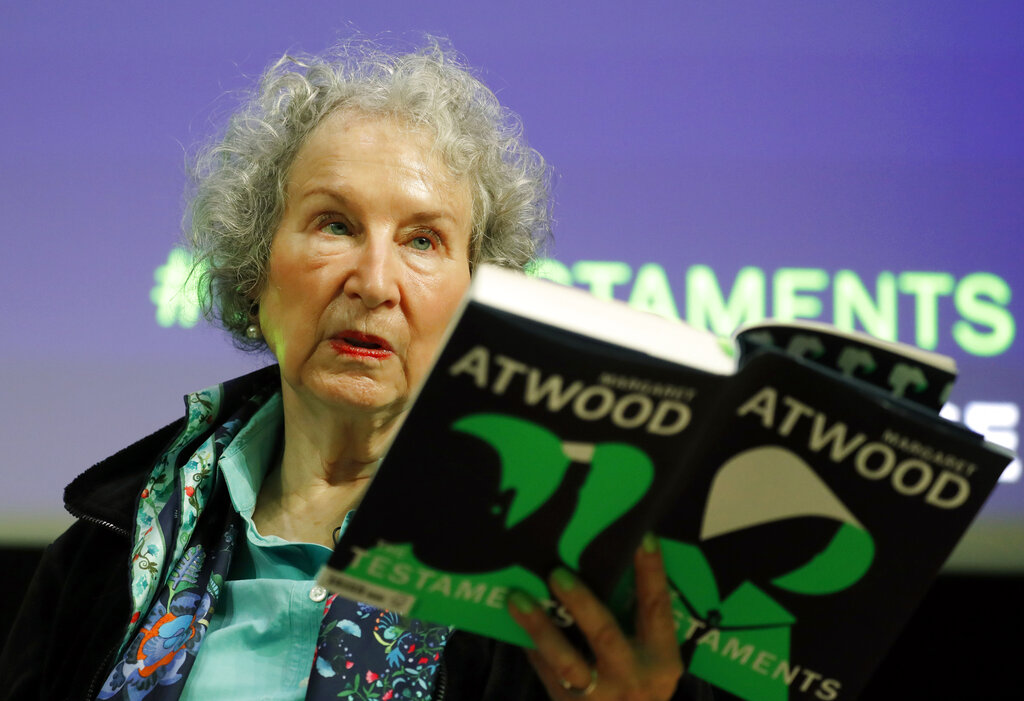Canadian author Margaret Atwood said moves to limit women's access to abortion, particularly in the United States, led to the sequel to The Handmaid’s Tale which was released on Tuesday in a hotly-anticipated cultural event.
The Testaments sees Atwood pick up the story from her 1985 account of a totalitarian future in which fertile women are forced into sexual servitude to repopulate a world facing environmental disaster. She said she had not planned a sequel to the story, which was set in fictional Gilead in the US region of New England in the near future, but real life political events, including moves to limit women’s reproductive rights, led her to reconsider.
“As time moved on ... instead of moving further away from Gilead, we started moving towards it — particularly in the United States,” Atwood told a news conference in London attended by several dozen journalists from a list of countries.
“If you look at the legislative moves made by a number of different states within the United States, you can see some of them are almost there. But what these restrictive laws about women’s bodies are claiming is that the state owns your body.”
Abortion is one of the most divisive issues in US politics, with opponents often citing religious belief to call it immoral while abortion-rights advocates call restrictions encroachment on women’s medical choices and harmful to health.
President Donald Trump, who says he opposes abortions in most cases, has joined many of his fellow Republicans in seeking to curtail access to legal abortions.
“For a society that claims to value individual freedom, I would say to them evidently you don't think this individual freedom extends to women,” Atwood, who turns 80 in November, told journalists.
The Handmaid’s Tale has long been hailed as a touchstone for feminist campaigners, with Atwood saying all the acts of repression in Gilead were based on real-life events.
Feminists in several nations have adopted the striking red gowns and white bonnets worn by the handmaids in the book and TV series to highlight women's rights at protests and marches.
“I think (The Testaments) enters onto a conversation that is already taking place because The Handmaid’s Tale has been a meme in these kinds of conversation for years,” said Atwood.
Asked if The Testaments was a dystopia, she replied: “A dystopia is an imagined society that we assume is worse than the one we live in ... Is The Handmaid’s Tale plus The Testaments a dystopian world? Let us hope so.”










